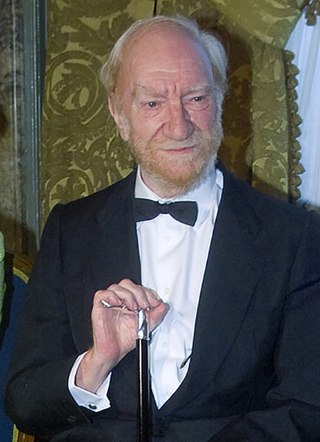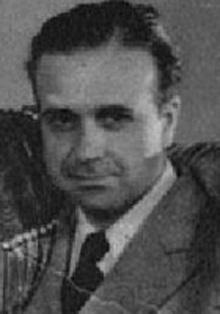Related Research Articles

Fernando Fernández Gómez, better known as Fernando Fernán Gómez, was a Spanish actor, screenwriter, film director, theater director, novelist, and playwright. Prolific and outstanding in all these fields, he was elected member of the Royal Spanish Academy in 1998. He was born in Lima, Peru while his mother, Spanish actress Carola Fernán-Gómez, was making a tour in Latin America. He would later use her surname for his stage name when he moved to Spain in 1924.

María del Pilar Cuesta Acosta, known professionally as Ana Belén, is a Spanish actress and singer. She and her husband are considered symbols of the Spanish Transition, and her songs and albums often feature boldly-titled works with social and political content.

Juan Diego Ruiz Moreno, professionally known as Juan Diego, was a Spanish actor who appeared on stage, in television and film productions since 1957. He starred in films such as The Holy Innocents, The 7th Day, Dragon Rapide, París-Tombuctú and You're the One.

José Luis López Vázquez de la TorreMMT was a Spanish actor, comedian, costume designer, scenic designer and assistant director. He was best known internationally for his lead role in the surrealist horror TV film La cabina. A prolific performer, he was an integral part of Spanish cinema for six decades, appearing in almost 250 films between 1948 and 2007.

Carlos Francisco Borcosque Sánchez was a Chilean film director and screenwriter involved in the production of the Cinema of Argentina.

Laura Ana "Tita" Merello was an Argentine film actress, tango dancer and singer of the Golden Age of Argentine Cinema (1940–1960). In her six decades in Argentine entertainment, at the time of her death, she had filmed over thirty movies, premiered twenty plays, had nine television appearances, completed three radio series and had had countless appearances in print media. She was one of the singers who emerged in the 1920s along with Azucena Maizani, Libertad Lamarque, Ada Falcón, and Rosita Quiroga, who created the female voices of tango. She was primarily remembered for the songs "Se dice de mí" and "La milonga y yo".

Elvira Fernández, vendedora de tiendas is a 1942 Argentine comedy film directed by Manuel Romero. It stars Paulina Singerman, Juan Carlos Thorry, Tito Lusiardo and Sofía Bozán. The film is about the daughter of a millionaire store owner, who organizes a worker strike.

Alita Blanca Barchigia, better known as Alita Román, was an Argentine film actress of the Golden Age of Argentine Cinema (1940–1960).

Chilean cinema refers to all films produced in Chile or made by Chileans. It had its origins at the start of the 20th century with the first Chilean film screening in 1902 and the first Chilean feature film appearing in 1910. The oldest surviving feature is El Húsar de la Muerte (1925), and the last silent film was Patrullas de Avanzada (1931). The Chilean film industry struggled in the late 1940s and in the 1950s, despite some box-office successes such as El Diamante de Maharajá. The 1960s saw the development of the "New Chilean Cinema", with films like Three Sad Tigers (1968), Jackal of Nahueltoro (1969) and Valparaíso mi amor (1969). After the 1973 military coup, film production was low, with many filmmakers working in exile. It increased after the end of the Pinochet regime in 1989, with occasional critical and/or popular successes such as Johnny cien pesos (1993), Historias de Fútbol (1997) and Gringuito (1998).

The Huelva Ibero-American Film Festival, held since 1975 in Huelva, Spain, is the oldest film festival in Europe dedicated to the Ibero-American cinema.

Luis Vicentini was a Chilean boxer. In 1922 he starred in Carlos F. Borcosque's debut picture Hombres de esta tierra.

Antonio Acevedo Hernández was a Chilean writer. Hernández was a self-taught novelist, playwright and writer whose works include theater, novels, short stories, literary and journalistic chronicles, essays, poetry and popular Chilean folklore. He created over 840 works, including the plays Almas perdidas,El Vino triste,La Sangre, and El Rancho. He was awarded the Premio Nacional de Teatro in 1936. His work, along with that of authors like Germán Luco Cruchaga and Armando Moock, marked the beginnings of Chilean dramaturgy.
Olinda Bozán was an Argentine film actress and comedian of the Golden Age of Argentine Cinema (1940–1960). Born into a circus family, she acted on the vaudeville circuit, and performed in silent and sound movies. She was trained by the Podestá brothers, one of whom she married, who have one of the most prestigious Argentine acting awards named for them. Bozán' appeared in 75 films and was considered one of the best comic actors of Argentine cinema in the 20th century.
Hombres de esta tierra is a 1922 Chilean silent film, the debut film of Carlos F. Borcosque. It features boxer Luis Vicentini, Jorge Infante, Ketty Zambelli, and Alfredo Rondanelli.
El huérfano is a 1926 Chilean short silent film, the last to be directed in Chile by Carlos F. Borcosque before moving to Hollywood. It stars his eldest daughter María Borcosque and Luis Rojas Müller.
El sátiro is a 1980 Mexican comedy film directed by Raúl Zenteno and starring Mauricio Garcés, Patricia Rivera, and Alberto Rojas.

15 mil dibujos is a 1942 Chilean animated film of 35 millimeters made by the filmmakers Juan Carlos Trupp and Jaime Escudero Sanhueza. It was filmed by Enrique Soto, and its music was performed by Chilean band Los Huasos Quincheros. 15 mil dibujos is the third animated film made in Chile, after Transmisión del mando presidencial (1921) and Vida y milagros de Don Fausto (1924).
María Jesús Isabel Wiesse Romero was a Peruvian poet, writer, essayist, anthologist, and film critic.

A Woman in the Rain is a 1992 Spanish comedy film directed by Gerardo Vera which stars Ángela Molina, Antonio Banderas, and Imanol Arias. It is a remake of the 1945 film Life on a Thread.
References
- ↑ Plazaola, Luis Trelles (1 January 1989). South American Cinema/ Cine De America Del Sur: Dictionary of Film Makers/ Diccionario De Los Productores De Peliculas. La Editorial, UPR. p. 36. ISBN 978-0-8477-2011-8.
- 1 2 Mouesca, Jacqueline; Orellana, Carlos (1 January 1998). Cine y memoria del siglo XX: cine en Chile : cine en el mundo : historia social y cultural de Chile : historia social y cultural mundial cuadros sinópticos (1895-1995) (in Spanish). LOM Ediciones. p. 108. ISBN 978-956-282-077-6.
- ↑ Quezada, Mario Godoy (1966). Historia del cine chileno:(1902-1966) (in Spanish). p. 48.
- ↑ Donoso, Eliana Jara (1994). Cine mudo chileno (in Spanish). Ed. Autor. p. 165. ISBN 9789562720243.